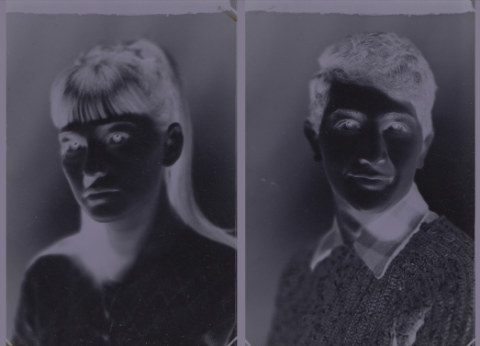First Person, New Filiations, Objects of Artistic Transition
rhizome and Louisa Babari, Algiers, Algeria, November 2023

Louisa Babari, Journal d'un étudiant algérien à Moscou, 2016, courtesy of the artist
This workshop explores traces of the Algerian experience of socialist development in relation to partnerships with sister countries—focusing Algeria’s particular positionality and centrality to pan-African movements and liberation struggles across the African continent at the time. The workshop attempts to delve into this history through two entry points: on one side through the architectural and cultural exchange exemplified by the University of Science and Technology in Algiers, designed by Brazilian architect Oscar Niemeyer and inaugurated in 1974. On the other, the workshop closely studies the Pan-African Cultural Manifesto, produced after a week of exchange during the 1969 Pan-African Festival symposium held in Algiers, which brought together African and diasporic delegations.
Using personal objects, photographs, letters, newspaper clippings, audio excerpts, or relationships of kinship or proximity from the 1960s and 1970s, the objective is to create elements of a biography and/or autobiography, an autofiction (a blend of real-life author's narrative and fictional exploration of their lived experiences). Through first-person narratives, the production of new lineages, and emancipation from genealogies and assignments, the aim is to create ‘counter-narrative spaces’, active and open artistic and literary devices.
rhizome is a newly established contemporary art gallery based in Algiers. Operating as both a commercial gallery and an independent art organization, rhizome works on promoting emerging contemporary artists, with a focus on art from Algeria and its diaspora. Through collaborating with artists, we work closely in accordance with individual approaches and practices, in order to support the realization of extraordinary projects. While developing the artist roster to include emerging talents and established artists, rhizome’s focus is to form a diverse community of artists exchanging various perspectives, closing a generational gap and fostering mutual learning.
Louisa Babari (born in Moscow, lives in Paris) is an Algerian and Russian artist who works at the intersection of the visual arts, critical theory, and literature. Her practice explores the politics and poetics of sound, image and discourse as forms of self-determination. Her latest works, which include sound installations, sculptures, graphic installations, and photography, consider the use of image and sound in relation to collective representations, forms of belonging and dissent. Babari was the recipient of the AWARE Prize for Women Artists 2023.